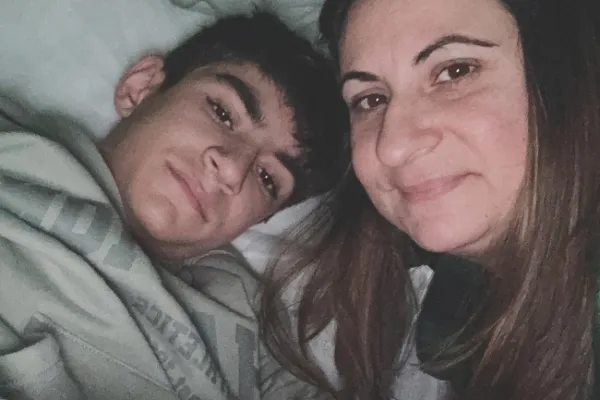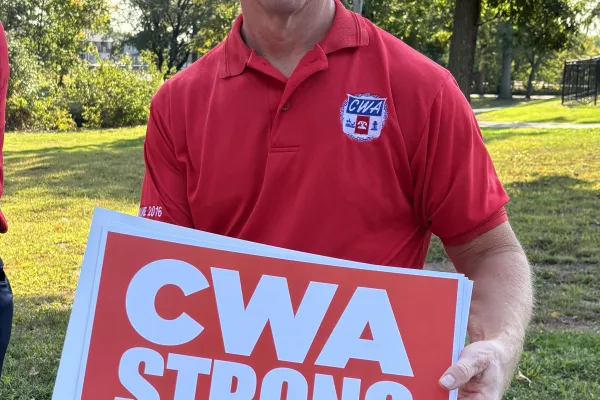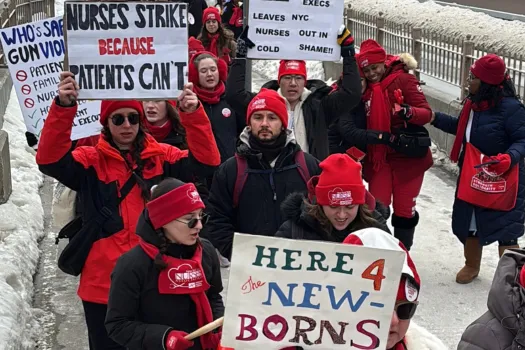Unions Push Back on Health Care Excise Tax
CWA leadership, locals and our members have led the opposition to the excise tax. From the start, CWA leaders made it clear that a tax on workers' health care was the wrong way to finance health care reform. We fought against this plan in the Senate and supported our friends in the House of Representatives who outlined better ways to finance health care reform. We supported Connecticut House Representative Joe Courtney in obtaining 190 signatures on a letter opposing the excise tax.
Because of this work, organized labor has been "at the table" and President Cohen and other labor union leaders have spent many hours talking with President Obama and White House officials to work out ways to ease the negative impact of this tax on our members. At the same time these discussions were taking place, you were keeping the pressure on: first the House, then the Senate, and then back to the House.
All of this work set the stage for several days of continuous tri-party bargaining and through these negotiations we made significant strides, not only in protecting our members, but in protecting all middle-class families who have health insurance coverage.
CWA members will be protected through 2017. That gives us at least one and in some cases more than one round of bargaining to address the impact on our members' plans from the changes.
This is not the plan we would have written if we were the sole author, but just like contract negotiations there is another side at the table. And, in this case there are three other sides: the House, the Senate and the White House. We are proud that the improvements we negotiated protect both union members and members of the public. Labor unions have a long history of protecting all workers and this is another great example.
Following is the list of improvements we made:
Delays Effect of Tax Until 2018: Provides a five-year transition window for all plans negotiated through collective bargaining and for state and local employee plans before they are potentially subject to the tax. This is what is typically done under federal laws to allow parties to collective bargaining agreements time to renegotiate the plans.
Raises Thresholds for Active Workers: Raises the threshold at which family plans are taxed from $23,000 to $24,000 in 2013 for all working families and from $8,500 to $8,900 for singles. Annual increases are tied to the Consumer Price Index plus one percentage point.
Increases Thresholds for Excessive Inflation: Raises the thresholds higher if health care costs grow faster than expected from 2010-2013.
Exempts Dental and Vision Plans from Threshold Calculations: This will begin in 2015, which could raise the thresholds as much as $1,500 for families.
Adds Demographic Factors to Determine Plan Thresholds: Thresholds for plans that have a higher average of older workers and female workers will be modified to reflect the higher plan costs for those workers.
Maintains Protections for Pre-Medicare Retirees and for High-risk Workers: Preserves the original Senate proposal that would raise the thresholds for plans covering pre-Medicare retirees and for plans that include workers in high-risk professions (affecting more than nine million workers). The thresholds are $26,000/family and $9,850/single.
Blending of Pre-Medicare and Medicare Premiums is Maintained: This averaging significantly reduces the affect of the tax on plans.
Maintains Thresholds for High-cost States: Preserves the original Senate proposal that would raise the threshold for high-cost states, affecting more than 38 million workers.
Health Plans Get Access to the Insurance Exchange: Allows any collective bargaining unit into the health insurance exchange in 2017, subject to collective bargaining.
Significantly Reduces Taxes on the Middle Class: These changes are estimated to reduce the amount of revenue raised by $60 billion, decreasing the hit from the excise tax to $90 billion, from the original $150 billion over 10 years.
In addition, in the final bill there will be many other protections for our sons and daughters who do not have insurance today. For instance, pre-existing conditions cannot be used to exclude coverage.
President Cohen and CWA have been leading the fight against the proposed excise tax on health care plans, working with Members of Congress, employers, organizations, coalitions, and other groups that understand that the proposed tax would increase costs and cut benefits for working and middle-income Americans.
More than any other union, CWA's leadership has really pushed this issue in the mainstream and online media, on Capitol Hill, and in building coalitions. Tens of thousands of phone calls and personal letters from CWA members, plus visits with their Members of Congress and staff in both Washington, D.C., and District Offices have made our message heard loud and clear. This work was made possible through the Health Care Strategic Industry Fund, which enabled CWA to train field activists who carried out our critical mobilization program. This week alone, more than 2,000 calls were made to Members of Congress by CWA members urging them to stand strong for fair health care reform.
As tough as these negotiations were, this was just one of the many tough issues the House, Senate and White House leadership are working to resolve. So, while this has the support of the leadership, it now has to be sold to both the House and the Senate and all of the other differences have to be resolved.
Once the leadership has worked through their differences, we expect they will submit a package to the Congressional Budget Office for scoring. That will likely take 10 days to two weeks. Then a bill will be provided to the House where a majority of 218 votes are needed to pass it and to the Senate where a supermajority of 60 votes will be necessary.
So, let us savor the success of these efforts, but recognize we still have work to do in the fight to protect our members' interests in this historic debate. With our unity and solidarity, we will turn the debate into a reality.
Local 1180 Member Searches for Kidney Donor to Save Her Son
From the Desk of the Assistant to the Vice President of CWA District 1
10,000 New York State Nurses Association Members Win Strike in NYC; 5,000 More Press On, Entering Week Five


